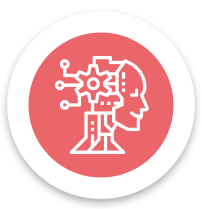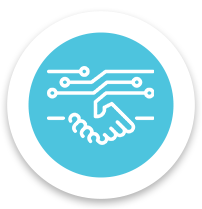The Covid-19 pandemic has pushed the global clinical trial industry and regulators to rapidly adopt technology and accelerate clinical development. Along with other technologies, adoption of AI & ML has moved forward at a much more rapid pace than initially envisioned. Similar to remote technologies, AIML technologies have gone beyond user’s expectations and have quickly occupied a central position in an organisation’s plans for the future. Pfizer’s 45,000 subject Covid-19 vaccine study which was completed in record time with the help of AIML is a case in point.
Looking at the big jump in the number of sessions in SCDM 2021 compared to the sessions in 2020 gives us a very good idea about the central role being played by AIML in clinical trials of both today and tomorrow.
Data Managers across are rightly concerned about the role they have to play in this increasingly digital world where every new use case appears to threaten their jobs however much they are reassured that would not be the case.
As a clinical trial industry professional who designs software solutions for the industry, I decided to understand the buzz around AI and hopefully understand it well enough to incorporate it into our products and develop new products around it. I decided early on that the courses being offered online would not be adequate for a serious practitioner and for someone who wanted to design solutions.
I decided to do a certification in AIML from the International Institute of Information Technology, Hyderabad. The course is highly regarded and is very technical, covering the entire gamut of machine learning including developing various models, Natural Language Processing, MLP and Deep Learning. My learnings from the course and advice to Clinical Trial Data Managers who are deciding to learn AI & ML are as follows:
AI is just getting started

AI models and computations are evolving rapidly and are changing on a daily basis. The good thing about AI is that the models are being made available to regular users almost as soon as they are done and validated. This is very different from other technologies where there is usually a lag of about six months to a year from the lab to widespread usage. The other good thing is that the validated models are made publicly available and in the form of libraries for non-technical users to also deploy
Future of Jobs in the Era of AI

All of this means that AI is already here and its already impacting jobs and that there’s very little lead time for Data Managers to adapt and up-skill themselves.
For Junior Data Managers

Who are just starting out and who have been in the industry only for a few years, my advice is to learn Python (if possible) and do a Machine Learning course which is technical in nature. The course would need to be comprehensive and cover all the various models as well as MLP and Deep Learning. The focus is on technical knowledge and not business knowledge. These courses are offered by the various IIITs, IITs and IIMs. Online courses on Coursera and Udemy may be inadequate for the level of knowledge and rigour required.
For Mid-level to Senior Data Managers

Business Analytics courses consisting of Machine Learning would be appropriate. Senior managers’ role would be to identify use cases in the clinical trial process – from study design, site section, data capture, study monitoring, data management, coding to data analysis and submission. A thorough understanding of the business use case, data preparation and model selection is critical. Courses offered by premier business schools like the IIMs and ISB and also online courses would be appropriate for Senior Managers.
There is a great demand for data science professionals especially in the clinical trials space. As studies grow more complicated and data more diverse, the need for non-formal methods of data analysis and monitoring is increasing. The coming AIML wave would need capable SMEs to identify use cases and guide developers in data preparation and applying appropriate models. Data Managers who rise to the challenge and embrace change in clinical data management will ride the next wave of clinical trial automation and AI.



